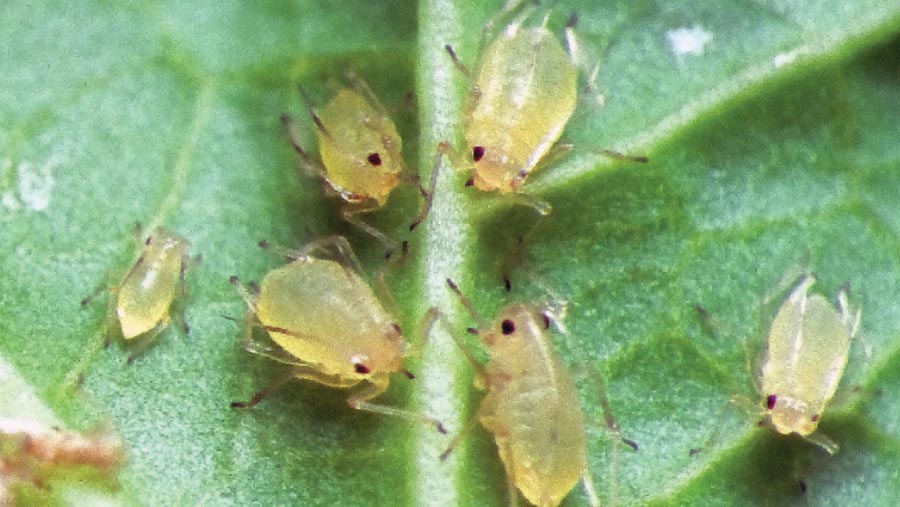Emergency authorisation for sugar beet aphicide
 Peach potato aphid
Peach potato aphid Growers are being urged to monitor sugar beet crops for peach-potato aphids after special permission was granted to prevent virus yellows infection.
The 120-day emergency authorisation for the use of Biscaya (thiacloprid) expires on 15 August.
It permits up to two treatments per crop at a maximum individual dose of 0.4 litres/ha.
See also: How new insecticide for virus yellows will help beet growers
Mark Stevens, head of science at the British Beet Research Organisation (BBRO), said use of Biscaya should be driven by awareness of aphids in crops and treatment thresholds.
The BBRO had doubled the extent of its aphid monitoring network this year to provide growers with advance warning of any potential problems, he added.
Crops should be monitored as soon as an interactive map on the BBRO website shows winged aphids being caught in their locality, said Dr Stevens.
Virus detected
In the first week of monitoring, 104 flying aphids were identified from received samples.
Of those tested to date, beet mild yellowing virus was been detected in samples from Milton, Cambridgeshire, and Bawtry, Doncaster.
Based on an assessment of 10 plants per field, the treatment threshold up to 12 true leaves is an average of one green wingless aphid per four plants.
From 12-16 leaves, as mature plant resistance comes in, it rises to one per plant.
Dr Stevens urges growers to move quickly to control aphids at threshold: “If you’re two days short of a herbicide timing, don’t wait for the opportunity to tank-mix.
Sound science
“Get the insecticide on immediately. We don’t want secondary spread of virus within the crop, especially at early growth stages when virus yellows’ impact on yield is at its greatest.”
The emergency authorisation was applied for by British Sugar and the NFU.
NFU Sugar chairman Michael Sly said aphid monitoring was continuing to assess the presence of virus yellows and the threat to sugar beet crops.
The NFU was continuing to argue for decisions about product usage to be based on sound science and evidence – but it was an uphill task, he warned.
“Our experience in dealing with the ban on neonicotinoids and subsequent emergency authorisation has shown how politicised plant protection products have become.”

